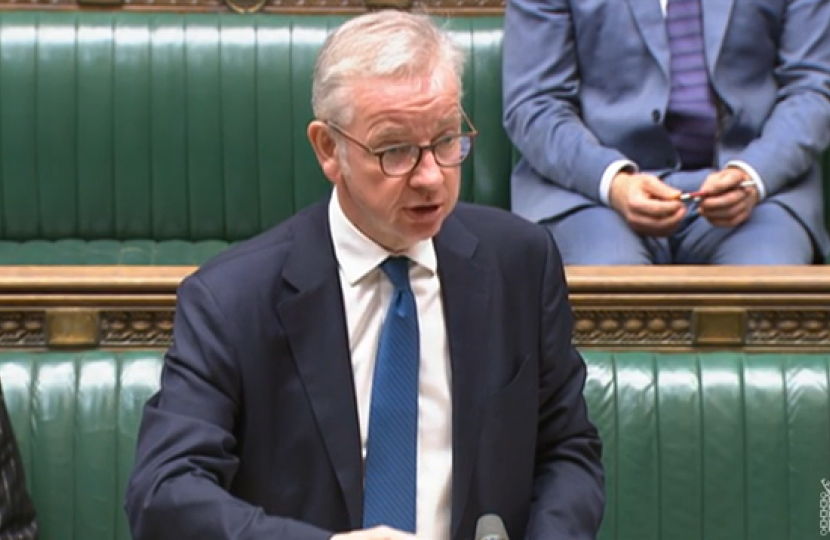
I beg to move, That the Bill be now read a Second time.
Before proceeding to the heart of the Bill, may I offer a few words of thanks to those who have laboured long in this field? We all know that leasehold and freehold legislation has preoccupied the House not just in this Parliament, but in many Parliaments in the past. Indeed, in the 1860s, 1870s and 1880s, much of the House’s time was taken up debating the finer points of such legislation. I was once described as a young man in a hurry. I am now an old man, but I am still in a hurry, in order to make sure that this legislation makes progress and that we liberate leaseholders from many of the unfair practices to which they are still subject.
I will say a bit more about that in a second, but I want first to say a special word of thanks to my predecessors as Secretary of State, who helped to issue the consultations and lay the groundwork for the measures that we are introducing today. I thank my right hon. Friends the Members for Newark (Robert Jenrick) and for Bromsgrove (Sajid Javid), but in particular I thank the late James Brokenshire, who did so much work to get us to this point. Having thanked them, I cannot but thank my hon. Friend the Member for Redditch (Rachel Maclean), who was a brilliant colleague in the Department and did so much of the heavy lifting to ensure that this legislation was ready to be introduced. She has been a brilliant colleague and a great Minister in so many ways. All the good things in the Bill are down to her; anything that is lacking is down to me.
I also thank members of the all-party parliamentary group on leasehold and commonhold reform, who have worked so hard for so long to ensure that the ground could be laid for today’s legislation. I thank the hon. Member for Ellesmere Port and Neston (Justin Madders) for his work and, in particular, his predecessor, the former MP for Poplar and Limehouse, Jim Fitzpatrick. I must thank the Father of the House, my hon. Friend the Member for Worthing West (Sir Peter Bottomley), who has been the single most consistent and bravest voice in standing up for leaseholders. I also thank—even though she is not in the Chamber—the hon. Member for St Albans (Daisy Cooper), who speaks on behalf of the Liberal Democrats and has contributed to the work of the APPG.
The APPG would not have been able to do its work without the Leasehold Knowledge Partnership. In particular, I thank Martin Boyd, who has been hired by the Government to head up our Leasehold Advisory Service, and Sebastian O’Kelly. Both have contributed to helping leaseholders and providing them with the advice and counsel they need to navigate this tangled landscape. I also thank the campaigners, some of whom I had a chance to talk to earlier, who have been indefatigable in making it clear that the law needs to change. I thank, in particular, Katie Kendrick, Cath Williams and Joanne Darbyshire, all of whom have made an impeccable case for change throughout.
What is the problem that we are trying to solve? Basically, it is this: leasehold as a form of tenure is essentially a deal where someone is invited to buy a home and then, instead of becoming a full homeowner, they are treated, or can be treated, as a tenant. It is a fundamentally unfair system and a fundamentally inequitable tenure, because those who buy flats and—increasingly, in recent years—houses, in good faith, paying market rates, assuming and hoping that they would be homeowners in the fullest sense of the word, have found that, rather than being homeowners, they are at the whim of the ultimate owner of the freehold, who is in effect their landlord.
In the past, there were justifications. There were cases and examples where those who held the freehold operated in an enlightened and paternalistic way. For example, the freehold of properties was sometimes held by trade unions or other enlightened organisations that would ensure that the common interests of all those within a particular building were looked after. It is still the case that some landowners and freeholders take their obligations towards leaseholders seriously, ensure that the service charges are levied in an appropriate way, keep the ground rent at an appropriately low level, and ensure that the building is maintained in a good state of repair. However, individual leaseholders should not simply have to rely on the good will and good character of whoever the freeholder is; they need better protection in law, which is what we seek to achieve with the Bill.

